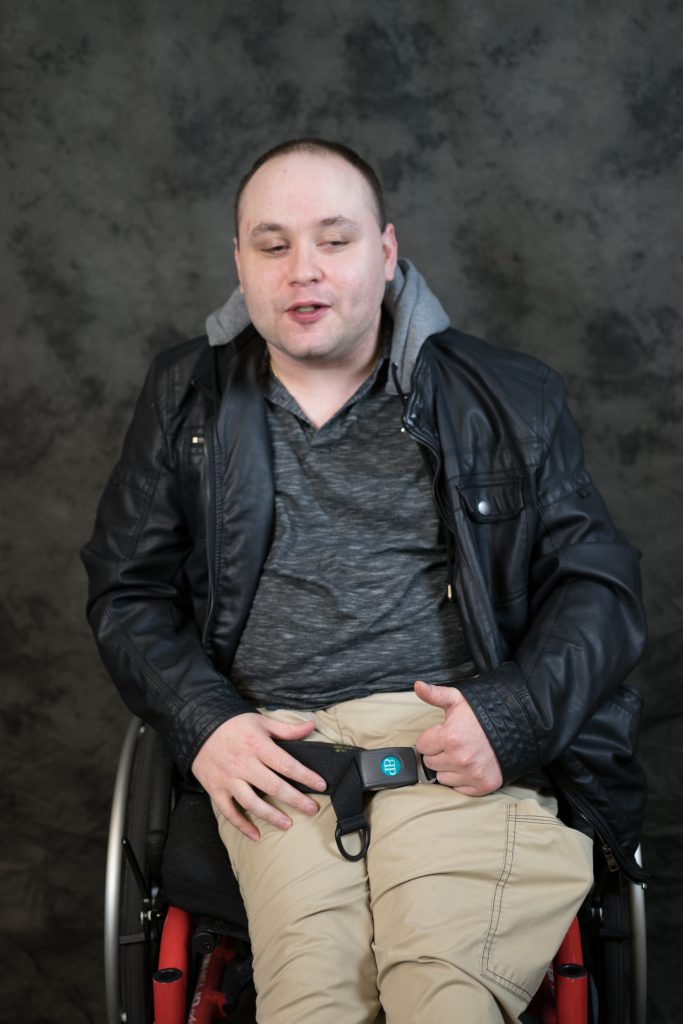The Power of Advocacy

By: Kandice Ferrell
Date: March 22, 2024
March is Developmental Disabilities Awareness Month, and I recently had an opportunity to connect with Mat Rice, Public Policy Director at People on the Go Maryland (POGM).
POGM is a statewide self-advocacy organization operated for and by people with intellectual and developmental disabilities and is a partnership between the Maryland Developmental Disabilities Council and the Maryland Center for Developmental Disabilities at Kennedy Krieger Institute. See Mat’s compelling perspectives below.
What makes you unique?
Mat: One thing that makes me unique is that I have a disability, and I run an organization advocating for people with Intellectual and Developmental Disabilities (IDD). During my personal journey, I have experienced a lot of what the people we support experience. I have been homeless and had struggles with finding employment and housing. I understand firsthand how people can start at their lowest point and rise higher with support.
How do you overcome challenges in your daily life?
Mat: I overcome challenges in a few ways, one being the helpful staff I work with who come together to support me with projects. I also use technology, including voice recognition software and screen readers, to assist me. I have been successfully self-directing since 2008, and it has been a challenging but great experience.
What activities or hobbies bring you joy and fulfillment?
Mat: When I am not working and have a break, I like watching YouTube videos and spending time with my two cats, Deanna and Ceaser. My cats absolutely rule my life, and I wouldn’t have it any other way. I also enjoy listening to audiobooks with science fiction and alternative history books.
Can you share a proud moment or achievement?
Mat: In 2016, I was supporting my friend and mentor, the former Director of People on the Go, with the Equal Employment Act. At one point, it looked like the bill would not pass and instead be redirected for review in a study group. Often, study groups are where bills go to die. During a hearing, I went right up to the Senate Committee leader, advocating for using People on the Go as a resource so we could find a compromise to support passing the legislation.
What gave you the courage to do that?
Mat: I just had this feeling that if someone didn’t speak up now, we wouldn’t have the right leadership at the table to get the bill passed. It felt like it needed to be done.
What message about disabilities do you want to share with others?
Mat: We don’t see disabilities as a burden; it’s the way society views disabilities and the systems that were not designed for us or by us that are the burden. We want the same things as everyone else: a home, value in society, not to be pitied, and opportunities to be heard.
Are there any myths about disabilities that you would like to dispel?
Mat: There are a few. If someone identifies as IDD, it doesn’t mean they aren’t capable of understanding important concepts or advocating for themselves. It just means we have to think about how we communicate so they understand clearly. There is also a myth that people with disabilities can’t work or have families, which is not true. We have to have high expectations of people and create pathways to success, regardless of whether or not people have disabilities.
What advice would you share about finding meaningful employment?
Mat: You have to sit down by yourself or with people you trust and ask, “Where am I in my life, and where do I want to be? What am I good at?” When I found People on the Go, it was kind of accidental. I saw an email for a Legislative Intern, and I didn’t know much about it, but I was interested in learning more. I always say to be open to trying new things because you never know where it might lead.
If you want readers to remember one thing, what would it be?
Mat: People with disabilities want equity in all aspects of life. Whether it is equal pay as non-disabled peers or access to owning a home, we want the chance to have real lives.
